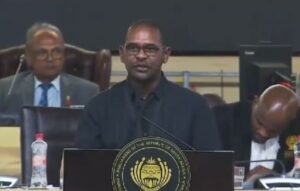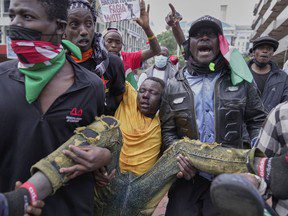In a developing story that has caught the attention of many within South Africa’s Muslim community, Sheikh Irfaan Abrahams has initiated another legal battle against the Muslim Judicial Council (MJC), challenging the process that led to Sheikh Riyaad Fataar being unchallenged in his ascension to the council’s presidency.
Abrahams alleges that the MJC has disregarded a prior ruling from the High Court concerning the procedure for electing new leaders, putting the council’s governance under scrutiny.
Further complicating the situation, a document acquired by Radio 786, penned by Sheikh Achmat Sedick, casts doubts over the legitimacy of Sheikh Fataar’s appointment. Sedick is pressing for clarity on the election mechanism, suggesting potential conflicts within the MJC’s Electoral Commission.
“The MJC’s Electoral Commission is compromised due to its alleged procedural irregularities,” Sedick argued in his letter to the council.
He raised a significant point regarding Sheikh Fataar’s prior role within the MJC. Before his nomination for president, Fataar held the position of second deputy president and was on the council’s payroll, which, according to Sedick, necessitated his resignation before he could be considered for the presidency.
Sedick’s concerns extend to the transparency of the electoral process, particularly questioning the Electoral Commission’s failure to inform the council’s general assembly about the presidential vacancy before Fataar’s unopposed nomination.
As the community and observers await a response from Sheikh Fataar to these allegations, the situation underscores the importance of transparency and adherence to established procedures within influential organisations. Radio 786 remains vigilant, ready to report on any developments or responses from the involved parties.

















